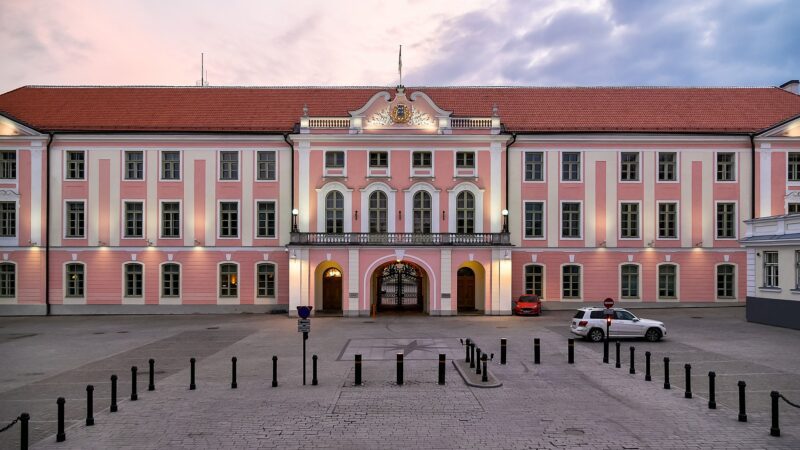
Roundtable / Parliament
Decoupling world: What are the lines of de-risking from China for Estonia and EU?
Note: this event is available for registered participants only
Location: Estonian Parliament (Riigikogu), Tõnisson Hall
Date: January 17, 2024
Time: 16—17:30
Moderator: Leslie Leino, Tallinn University
Roundtable participants: Marko Mihkelson (Chairman of Parliament’s Foreign Affairs Committee); Juan Zhang (University of Bristol); Jekaterina Koort (Tallinn University), Monique Taylor (University of Helsinki)
Brief summary
New buzzwords favoured by top US and EU elites and policymakers for pushing forward conservative economic and political agendas towards Russia and China are ‘decoupling’ and ‘de-risking.’ Both terms refer to a deliberate separation of national interests among major global players in the realms of economies, politics, and social values. For the US and EU, this means bypassing regions that are potential sources of insecurity – cutting or reducing their dependence on Russia and China and diversifying supply chains and their own production lines. The EU has said that by 2030, it wants to ensure no third countries provide more than 65% of any one key mineral.
While decoupling from Russia is in full swing and the lessons learned are clear-cut, the earlier slogans on decoupling from China have been replaced by the term ‘de-risking,’ at least in rhetoric, which is a less radical and more measured approach to mitigating risks and avoiding absolute ruptures.
How to de-risk from China and what are the lines of de-risking (i.e. the hierarchies of de-risking priorities)? What do such political discourses of disassociation mean for small countries? What are the lived realities, impacts and opportunities in a more bordered world?
Roundtable participants
Juan Zhang is a sociocultural anthropologist and currently Senior Lecturer in the Department of Anthropology and Archaeology at University of Bristol. Zhang’s research explores borders and transnational migration in various forms, with particular interests in Asian borderlands, migrant im/mobilities and transnationalism, cross- border cultural politics, and China.
Jekaterina Koort is a lecturer at Tallinn University. She has received her PhD in Studies of Cultures from Tallinn University with a focus on China. Koort has lectured on media, influence activities, Chinese foreign policy and China-Russia relations. Koort is a member of the Estonian Institute of Human Rights.
Marko Mihkelson is a member of the Parliament of Estonia, and Chairman of Parliament’s Foreign Affairs Committee.
Leslie Leino has studied Asian studies at Tallinn University and graduated Advanced Chinese language studies at Renmin University in China in 2008. Since 2008, he has been working as a translator and consultant, and is currently a research fellow in Chinese studies at Tallinn University.
Monique Taylor is a Senior Researcher in the Department of Cultures at the University of Helsinki and a Research Affiliate at the Lau China Institute, King’s College London. She received her PhD in International Political Economy from the University of Queensland.